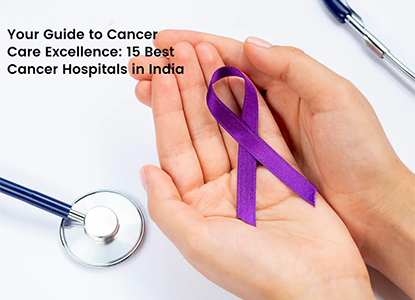
Indias Top Cancer Care Specialists
The Significance of a Second Opinion in a cancer diagnosis is a fundamental right of every patient and a crucial step towards empowered decision-making. Receiving a cancer diagnosis can be overwhelming, and it is natural to have questions and uncertainties. Seeking a second opinion from another qualified oncologist, preferably at a different institution, provides valuable perspective. It can confirm the initial diagnosis and treatment plan, which offers peace of mind and builds confidence in the chosen path. Alternatively, it might reveal a different interpretation of the pathology, a more accurate staging of the cancer, or suggest an alternative treatment approach that may be more effective or have fewer side effects. This is especially important with rare cancers or when advanced treatments like targeted therapy or immunotherapy are being considered, as expert opinions can vary. A second opinion is not a sign of distrust in your primary doctor; rather, it is a proactive measure to ensure that all avenues have been explored. Top oncologists encourage and respect a patients desire for a second opinion, recognizing it as an integral part of responsible and collaborative medical practice. It arms the patient with comprehensive information, enabling them to make the best possible choice for their health.
Post-Treatment Care and Survivorship Programs are essential components of a comprehensive cancer journey, focusing on health and well-being after the active treatment phase concludes. Finishing cancer treatment is a major milestone, but the journey does not end there. A survivorship program is a personalized plan designed to manage the transition from being a patient to a survivor. It typically includes a detailed summary of the treatment received, a schedule for regular follow-up appointments and surveillance scans to monitor for recurrence, and recommendations for managing long-term side effects. These side effects can range from physical issues like fatigue and neuropathy to emotional challenges like anxiety or fear of recurrence. Effective survivorship programs also emphasize preventive health, providing guidance on diet, exercise, and lifestyle modifications to reduce the risk of secondary cancers and improve overall health. Many programs connect survivors with support groups, allowing them to share experiences and gain strength from peers who have walked a similar path. This structured follow-up ensures that survivors are not left to navigate their future alone but are supported in maintaining their long-term health and quality of life.
Leveraging Support Systems and Palliative Care is critical for managing the holistic impact of cancer, addressing not just the physical disease but also the emotional, social, and spiritual distress it can cause. A strong support system, comprising family, friends, and professional counselors, provides the emotional foundation needed to cope with the rigors of treatment. Palliative care, often misunderstood as only end-of-life care, is specialized medical care focused on providing relief from the symptoms and stress of a serious illness. It is appropriate at any age and at any stage in a cancer diagnosis and can be provided alongside curative treatment. The goal is to improve the quality of life for both the patient and the family. A palliative care team works to manage symptoms like pain, nausea, and fatigue and also provides a layer of support that addresses emotional and spiritual needs. This can involve counselling, nutritional guidance, and help with navigating complex medical decisions. By integrating palliative care early in the treatment process, patients often experience fewer symptoms, better communication with their doctors, and an overall improved sense of well-being, which can positively impact their ability to tolerate and complete their cancer treatments.








